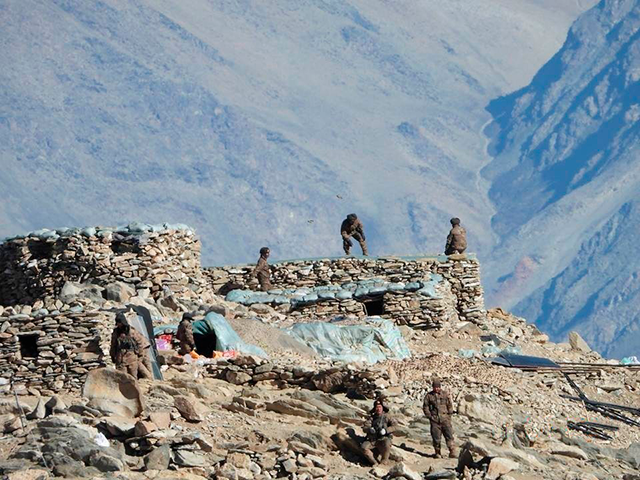Chinese police arrested three bloggers Sunday for the “crime” of “slinging mud” at the People’s Liberation Army (PLA) by doubting its official narrative of the Galwan Valley clash in June 2020, a massive hand-to-hand brawl between Indian and Chinese troops in the Himalayas that resulted in dozens of casualties.
China’s state-run Global Times was vague about explaining precisely what the bloggers wrote that was so offensive:
Following the arrests of two Web users who slung mud at the People’s Liberation Army(PLA) heroes who were killed in the Galwan Valley border clash with India, a blogger in Southwest China’s Sichuan Province confessed his misdeeds for having insulted the martyrs on Sunday, and he has been arrested.
The 25-year-old Web user, surnamed Yang, was reported to the local police in Sichuan’s Mianyang by netizens on Saturday for having posted smears toward the PLA soldiers, who fought in the China-India border clash. Under social pressure, Yang confessed to the police the following day, and he was given seven days of detention, according to a statement by the local police.
The notice of the arrest was published on the official WeChat account of the Beijing police on Sunday. It said that they had received a report on Saturday of a person aged 28, surnamed Chen, publishing insulting comments in a group chat about the PLA soldiers who died when dealing with the Indian military’s illegal trespassing in the Galwan Valley.
India, of course, insists the Chinese were the ones trespassing in the Galwan Valley by massing troops along the contested border, formally known as the Line of Actual Control (LAC), and then moving some of those troops to positions clearly on India’s side. The Indians have a good deal of satellite imagery to back up their claims.
According to the Global Times, the police were “hailed by the Chinese public for their quick reaction and giving the proper punishment to the slanderer,” while social media platform Weibo — China’s alternative to Twitter, which is banned for everyone except high Communist Party officials and propagandists — was supposedly applauded for suspending his account, which had 2.5 million followers.
“A law that came into effect on May 1, 2018 stipulates that it is illegal to defame the country’s heroes and martyrs,” the Global Times noted.
A Chinese newspaper editor pithily summarized the purpose of that law when it went into effect: “What the party decides to be true can no longer be challenged.” The first targets prosecuted under the law were a comedy website that accurately quoted a poem written by a designated Communist Party war hero for satirical purposes, and an individual who “allegedly spread hate speech” on social media about a fireman who died in the line of duty.
India’s WION News said Monday that the three Chinese bloggers were persecuted for doubting the Chinese government’s long-delayed admission of casualties suffered in the Galwan clash.
One of the three bloggers — not some random Internet troll, but a professional investigative journalist named Ziming Iu — wrote Weibo posts suggesting the casualties were much higher than the four slain soldiers China finally admitted to last week, eight months after the battle. Ziming noted India promptly disclosed its 20 fatalities and suspected the Indians were correct in their long-standing belief that over 20 Chinese soldiers died in the fight.

COMMENTS
Please let us know if you're having issues with commenting.